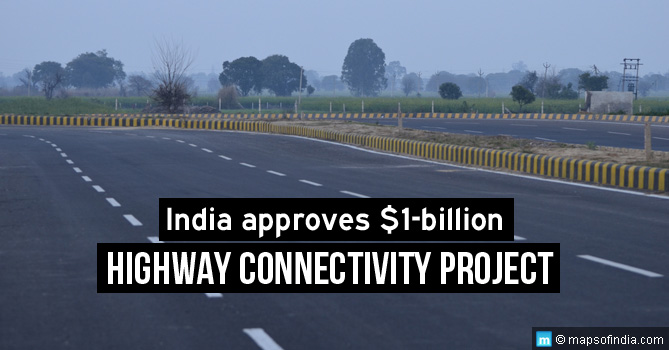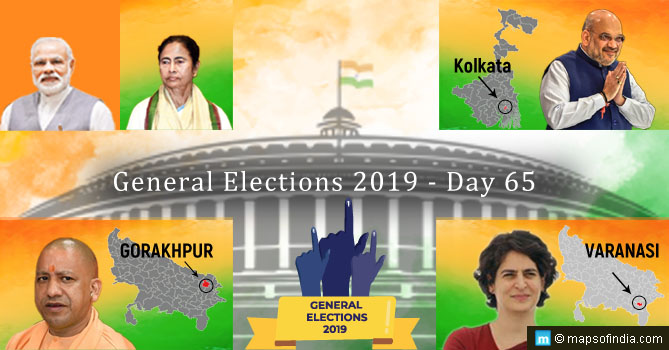Ever since the NDA government took over at the centre, PM Narendra Modi has been keen on improving India’s position and importance in the global community. More importantly, he has been working consistently towards improving ties with the neighbouring countries such as Nepal, Bhutan, and Bangladesh. One important aspect of this endeavour is to improve economic ties and business dealing in the region.
Tourism and its development, in India and its neighbouring countries, also takes the centre stage in this context. But, to meet these high ambitions, it is very important to put in place the infrastructure to support such mutual exchanges. Being the more affluent among these countries, India has taken it upon itself to develop the infrastructure, which will boost trade and tourism with its neighbours, particularly with Bangladesh, Nepal, and Bhutan.
USD 1 Billion Transnational Highway Project
India’s main objective (in terms of its south Asian policy) is to improve trade and boost economic ties with Nepal, Bhutan, and Bangladesh by up to 60 percent. With this in mind, the Indian government has given a ‘go ahead’ to an ambitious project that shall be constructing new transnational highways and repairing existing roads that link with these countries. The project aims to repair and upgrade about 558 kilometres of existing cross-national highways, apart from construction of new ones. Not only will this help movement of cargo across borders, but will bring a much required fillip to tourism.
This project has also received the official approval of the Department of Economic Affairs. The project comes with a USD 1.04 Billion price tag, of which half the funding is likely to come from the Philippines based Asian Development Bank (ADB). According to news reports, talks are on and it is possible that the ADB may pour in more funds into the project. Officials are hopeful of receiving up to USD 700 Million if the talks come through. According to the Ministry of Road Transport and Highways, “The mandate is for completing the project within the next two years. The primary idea behind the Bangladesh-Bhutan-India-Nepal (BBIN) road initiative is to improve ground connectivity in the region.”
Projects Involved
Current plans approved for the project will involve extensive work in the states of Manipur and West Bengal. Five different highways have been singled out for work. Construction and repairs in these will greatly improve connectivity in the region.
The three projects likely to be executed by the West Bengal state Public Works Department include –
- A new 123-kilometre highway is likely to be constructed between Diamond Harbour (near Kolkata) and Bangladesh. USD 250 million is earmarked for this new road construction.
- The Siliguri-Mirik-Darjeeling Highway is one of the first slated for repair and upgradation work. About USD 15 million has been earmarked for the upgradation of this 122-kilometre stretch.
- The next that shall receive a fund of USD 130 million is National Highway 35 connecting Kolkata (West Bengal) and Bangaon (Bangladesh). This highway is also likely to be upgraded and widened.
Moving on to Manipur, there are two highways likely to come up in the state. These include –
- A 115-kilometre road connecting Ukhrul with Tolloi and Tadubi at the cost of about USD 230 million.
- Upgradation of a 138-kilometre section on National Highway 39 connecting Kohime with Kedima Kring and Imphal to make it a four lane road. This comes with a cost of USD 280 million.
The National Highway Infrastructure Development Corporation shall be responsible for construction of these roads.
More Construction Likely
This transnational highway project is not the only one that the government of India is undertaking to improve connectivity in the region. Apart from the constructions to be undertaken under the aegis of this project, plans to construct a 110-kilometre road between Imphal and Moreh is being planned out. Another 600 metre bridge connecting connect Panitanki in West Bengal (India) with Kakarbhitta in Nepal will also be constructed very soon. These will also be part of the BBIN road initiative and partly funded by the ADB. While Indian authorities seem to have cleared the project report for these two constructions, approvals from Nepal are yet to be received. Once all the clearances come through the bidding process is likely to get underway.
Motor Vehicles Agreement
Last year, in June 2015, Bhutan, Bangladesh, India, and Nepal (BBIN), signed a landmark agreement allowing for seamless movement of cargo and people across the borders of these countries. Union Minister of Road Transport & Highways and Shipping, Nitin Gadkari, had taken the lead in working out the agreement and implementing it. Speaking about this Motor Vehicles Agreement, Gadkari had said, “This agreement between sub-grouping of four South Asian nations — Bangladesh, Bhutan, India and Nepal — will pave the way for seamless movement of people and goods across their borders for the benefit and integration of the region and its economic development.” The implementation of this transnational highway project is an important step in holding up our end of the Motor Vehicles Agreement.





